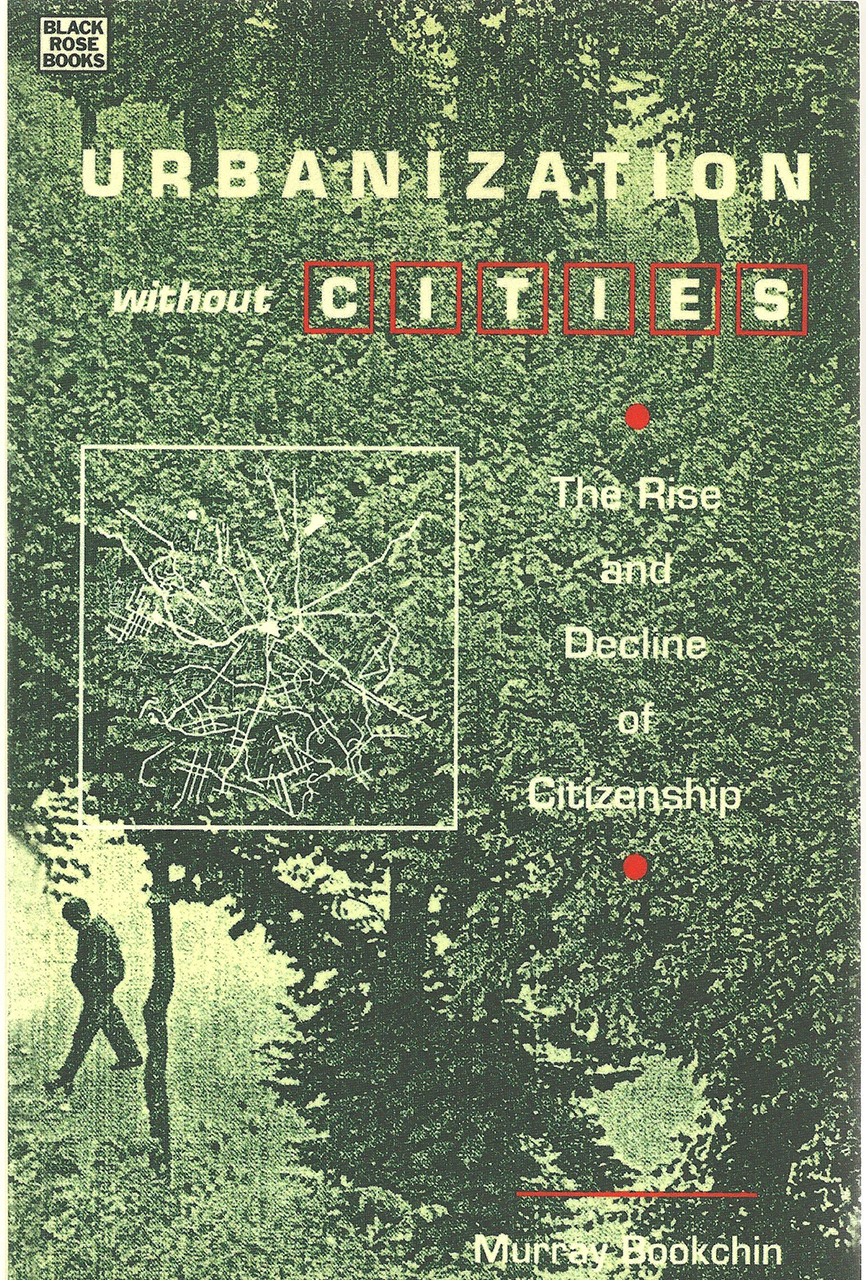Paperback, 340 pages
English language
Published Sept. 3, 1991 by Black Rose Books.
The Rise and Decline of Citizenship Black Rose Books, #171

Paperback, 340 pages
English language
Published Sept. 3, 1991 by Black Rose Books.
Murray Bookchin introduces provocative ideas about the nature of community and what it means to be a fully empowered citizen. He believes that the tensions that exists between rural and urban society can be a vital source of human creativity, thereby defining a new, richly imaginative politics which can help us recover the power of the individual, restore the positive values and quality of urban life, and reclaim the ideal of the city as a major creative force in our civilization. What is envisaged is an environmentally oriented politics, a new ecological ethics and a citizenry that will restore the balance between city and country and, ultimately, between humanity and nature.
Murray Bookchin is a pioneer thinker and writer and has been active in the ecology movement for more than thirty years. He is widely regarded as one whose ideas are decades ahead of his time. Professor Emeritus at the …
Murray Bookchin introduces provocative ideas about the nature of community and what it means to be a fully empowered citizen. He believes that the tensions that exists between rural and urban society can be a vital source of human creativity, thereby defining a new, richly imaginative politics which can help us recover the power of the individual, restore the positive values and quality of urban life, and reclaim the ideal of the city as a major creative force in our civilization. What is envisaged is an environmentally oriented politics, a new ecological ethics and a citizenry that will restore the balance between city and country and, ultimately, between humanity and nature.
Murray Bookchin is a pioneer thinker and writer and has been active in the ecology movement for more than thirty years. He is widely regarded as one whose ideas are decades ahead of his time. Professor Emeritus at the School of Environment Studies, Ramapo College and Director Emeritus of the Institute of Social Ecology, he has authored more than a dozen books on urbanism, ecology, technology and philosophy.
(Source: University of Chicago Press)